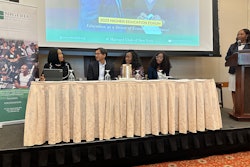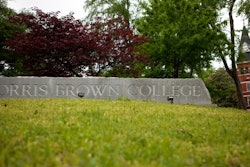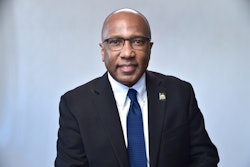Globalization and Africa
Scholars explore impact of language, colonization and supernational organizations
By Kenyatta Albeny
NEW YORK
More than 100 students, activists and scholars gathered recently at Columbia University’s Teachers College to explore the effects of globalization and decentralization on education, health care and land reform in Nigeria, South Africa and Uganda.
During the one-day conference “Africa in an Age of Globalization” last month, panelists using case studies challenged participants to think not only about specific issues relating to globalization and decentralization in Africa but also about the ideologies that undergird them. Similarly, panelists urged a rethinking about the notion of “development” and its relationship to policy in Africa.
“It is evident that in Africa the impact of supernational organizations such as The World Bank, The IMF (International Monetary Fund), the WTO (World Trade Organization) have come to dominate prescriptions underpinning state strategies for economic recovery and growth,” noted conference co-
organizer, Dr. Gregory Anderson, assistant professor of higher and postsecondary education at Teachers College.
“Indeed,” he continued, “these global forces are increasingly hegemonic and, in the case of Africa, with its longstanding history of problems and dilemmas, globalization as an ideology is distinctly shaping the arenas of policy and the directions and scope of state reforms.”
In the first of two panels, “Globalization and Education in Africa,” presenters highlighted three critical issues in contemporary education in Africa: language policy formulation, assessment and community participation.
For a continent where several thousand languages are spoken within its borders, language has long been viewed as a challenge to education and political development. As a result, colonial language policies of the past often forbade the use of African languages in official functions of the state. Today, the official languages as well as the languages of instruction and scholarship in most educational institutions continue to be English, French and Portuguese, despite the fact that far greater numbers speak other languages.
Dr. Eyamba Bokamba, associate head in the Department of Linguistics at the University of Illinois at Urbana-Champaign called for a greater investment in African languages.
“Post-colonial African states, with a few exceptions, have continued the inherited colonial language policies in spite of perceived and demonstrated problems with such policies,” Bokamba said. “Some of these problems include high rate of failure in the secondary school systems, high repetition rate … and the poor performance overall of teachers who are expected to teach subjects in the official languages.”
Noting that countries such as South Africa have made more than 10 African languages official languages of the state, Bokamba challenged African policy-makers to reassess the role of African languages and the possibility of multilingualism in African development strategies. During the discussion that followed, some participants pondered the advantages, disadvantages, costs and success of existing and proposed African language policies.
The legacy of colonialism and apartheid also took center stage in the discussions of assessment in West African school systems and community participation in South African school systems.
Dr. Mary Dillard, assistant professor of history at Sarah Lawrence College, urged participants to broaden their current conceptions of globalism. To that end, she illustrated the way colonialism functioned as a “globalyzing” force, acknowledging its effect on the emergence of standardized testing as a practice in the continent as well as internationally. Using the West African Examinations Council as her case study, she then examined the history and evolving function of testing and assessment in certain West African countries as well as its relationship to and role in their development.
Again noting the legacy of the past, Dr. Suzanne Grant-Lewis, director of the International Education Policy Program at the Harvard Graduate School of Education, discussed the ways that school policy in South Africa retains the inequities created under the apartheid educational system. Her presentation urged participants to examine the broad assumptions that undergird current school policy in South Africa, illustrating how those assumptions have, in some cases, undermined parental and community involvement. Additional sessions included discussions about AIDS in Africa and the impact African cultural traditions have on the continent’s own development.
Bringing the event full circle, Dr. Gavin Williams of Oxford University in his keynote address traced the way philosophies of development have directly related to policy and involvement of government and non-governmental organizations in Africa.
Participants and presenters alike agreed that at the root of any discussion of development for Africa in the 21st century is the question of globalization. Its meaning, however elusive and seemingly out of reach, must encompass not only the objectives of transnational corporations and the demands of global forces, but also the realities of individuals living in the Third World as well as the necessity to do right by the world’s poorest countries.
© Copyright 2005 by DiverseEducation.com





















